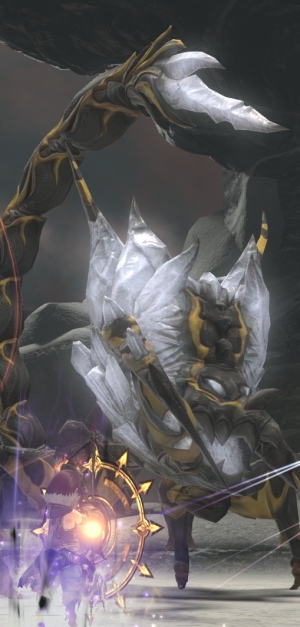
One of those phrases we like to use a fair amount here is the fact that running an MMO is a marathon, not a sprint. You don’t need to look far to find examples of games that started small but managed to claw up in esteem over time. The Elder Scrolls Online, Final Fantasy XIV, EVE Online, and even Warframe didn’t launch to immediate overwhelming success, but all of those games developed followings, improved gameplay, and steadily acquired more critical clout.
And then you have LawBreakers, which was described as a marathon instead of a sprint and stopped running the marathon pretty early.
This isn’t about dunking on the many games that didn’t make it through that marathon, of course; a lot of games are designed with the intent of long-term updates and wind up falling far short of expectations. (Looking in your direction, WildStar.) Rather, it’s about the very nature of the analogy and unpacking it a bit more because even a marathon is easily lost if you’re not making any forward progress.
 As with a lot of frequently used phrases, it’s hard to find a definitive origin point for this particular analogy being used; Dr. Phil claims to have originated it, so take that with the requisite grains of salt. But it gets applied to almost everything that involves long-term work rather than short-term progress. The idea is that sure, you might stumble at first, but you can recover over the long term! That’s what matters, right?
As with a lot of frequently used phrases, it’s hard to find a definitive origin point for this particular analogy being used; Dr. Phil claims to have originated it, so take that with the requisite grains of salt. But it gets applied to almost everything that involves long-term work rather than short-term progress. The idea is that sure, you might stumble at first, but you can recover over the long term! That’s what matters, right?
Except… no, that’s not really what it means. Go try to start a marathon by not running for an hour and see how you do. I’m going to go ahead and guess badly.
Let’s go back to the four titles I listed right at the start. At launch (or start of open beta, for those who want to be fairly pedantic about Warframe) all of those games had serious issues. They also, however, had serious positives as well and were doing things that were legitimately different from other titles on the market. Sure, I can spend hours listing all of the problems with FFXIV at launch, but the game was wildly different from other games on the market at the same time, and it had a lot of elements (robust class-based crafting, elaborate storytelling, detailed worldbuilding, aesthetic sensibilities) that have more or less been preserved along the way.
These are titles where the analogy works because while they had bad elements, they also had plenty of good ones that earned fans who were willing to overlook the problems. There was a nugget of good stuff at the core.
More importantly, each of these titles had designers (or in FFXIV’s case, soon acquired a director) who recognized the good parts and were willing to cut away the rest. There are a whole lot of problems in Elder Scrolls Online, but the design team was more willing to excise the stuff that didn’t work rather than hold on to it. If players hate how things work at the level cap, that needs to be changed. You don’t need more systems to get them on board; you need to change the systems.
Let’s assume, for the sake of argument, that solutions for a game’s issues are easy to implement and transparent even to the designers. (This is rarely the case, but again, it’s the purposes of argument.) It’s hard to look at a game you made with activities you think would be fun and have people tell you that they hate it. It’s really tough to take the required deep breath and make those changes, even remove stuff that you think is cool.
This is compounded by the reality of developing online titles. During the time in which you’ve had a public presence, you’re getting design feedback from fans and journalists. Most of the time, the latter group is more concerned with explaining and understanding than with evaluating, and while we do our best to evaluate things too, it’s based on predictions. The former group, meanwhile, is full of people who are predisposed to like what you’re doing, either downplaying or ignoring the actual issues that may be in place.
So your launch day is the day when you actually get people who are interested without being either on-board or analytical. It can be a splash of cold water that not everyone is prepared to feel.
 You still see games that have the “sprint” mentality; temports in particular seem designed to sell a few big pre-order packages for games that don’t seem to have a long lifespan. Kickstarted games also can harbor a similar mentality of selling people big on a fandom based not on the game itself but on what the fans imagine the game will be like; the actual game may fall short, or there may not be a game there at all.
You still see games that have the “sprint” mentality; temports in particular seem designed to sell a few big pre-order packages for games that don’t seem to have a long lifespan. Kickstarted games also can harbor a similar mentality of selling people big on a fandom based not on the game itself but on what the fans imagine the game will be like; the actual game may fall short, or there may not be a game there at all.
The struggle of the marathon isn’t just in getting out the gate with anything and then relying on positive buzz and player counts to boost you up after that launch. It’s the fact that you have to be able to keep going after the start, and you can recover from a weaker start over time. An online game can continually improve, release new content, and ultimately earn a better reputation than it got at launch. Launch scores are just your starting position.
But you do still need to start. And you need to be able to shift your development footing over from catching fans to encouraging new people to become fans.
Interestingly enough, part of this is less about new content and more about managing the narrative. Human beings are wired to like narratives, and if a game casts itself successfully as a scrappy underdog refocusing after launch issues, we tend to think more highly of it than if it’s a bad game that launched and just kept doubling down. But it’s also about new content, things to address the issues people point out and to establish that the game is going to be worth paying attention to over the long term.
We’re facing a slew of titles that either launched recently or will launch soon, and all of them seem to be in need of some marathon treatment. Atlas is struggling to fix bugs and improve the gameplay experience. Anthem’s current narrative is focused on server issues and questions of viability. The Division 2 needs to overcome boredom with its “same as the last one, but new” setup. And there are other titles still mid-run with some stumbles in the marathon, like World of Warcraft and its tepid reception at present or RIFT and the fear that the game has been functionally abandoned.
All of these games are facing their own marathons, and they’ll be interesting to watch. But the fact that these are marathons doesn’t mean that any of these titles can get away with a failure to launch at all. You can rebuild trust after early blunders, but you have to start with people interested in the first place.
Sure, your starting position doesn’t determine where you’ll wind up in the long run if you put in the work. But you do need to start somewhere, or you’re going to end up as a footnote, and your game has to actually change once it becomes clear that course correction is needed. Otherwise the fact that it’s a marathon just means running into traffic more slowly.
 Sometimes you know exactly what’s going on with the MMO genre, and sometimes all you have are Vague Patch Notes informing you that something, somewhere, has probably been changed. Senior Reporter Eliot Lefebvre enjoys analyzing these sorts of notes and also vague elements of the genre as a whole. The potency of this analysis may be adjusted under certain circumstances.
Sometimes you know exactly what’s going on with the MMO genre, and sometimes all you have are Vague Patch Notes informing you that something, somewhere, has probably been changed. Senior Reporter Eliot Lefebvre enjoys analyzing these sorts of notes and also vague elements of the genre as a whole. The potency of this analysis may be adjusted under certain circumstances.













